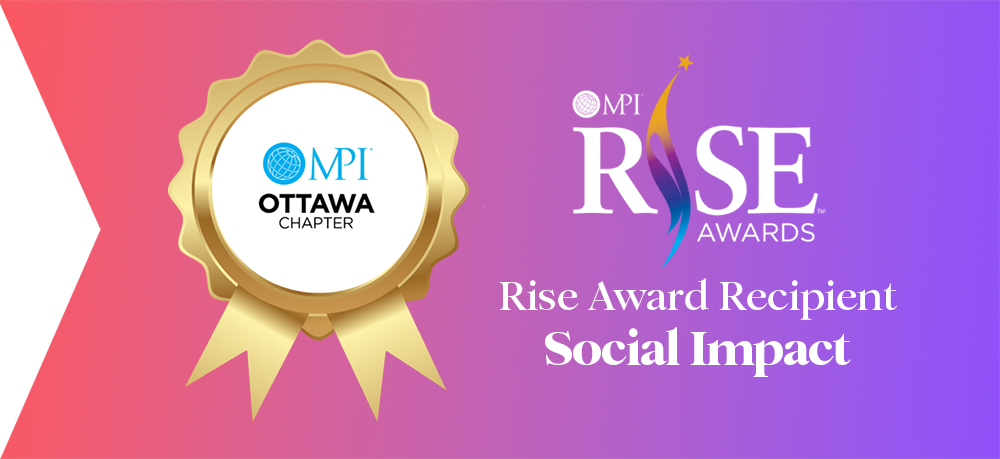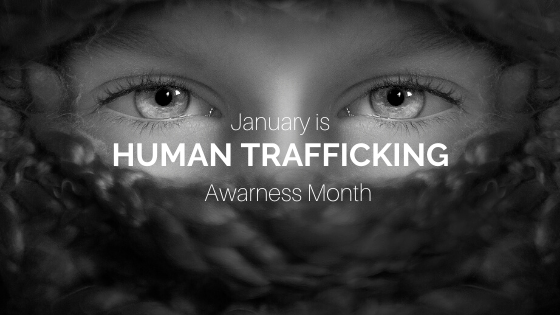Studying for the Certified Meeting Professional exam? MPI Ottawa has you covered!
Learn More
Check out all the exciting events taking place in the upcoming year!
Learn More


5 Ways Event Planners Can Combat Human Trafficking

January is Human Trafficking Awareness Month, a vital time to spread awareness and renew dedication to ending all forms of slavery in Canada and internationally. As conference and event professionals, we are in a unique position to raise awareness of/and prevent the commercial and sexual exploitation of over 40 million victims globally.
Whether this is your first time learning about human trafficking or you are very familiar with the subject, below are the latest statistics and useful tips on what you can do to combat the issue. Remember, no action is ever too small.
Modern Slavery in Canada
Human trafficking, also known as modern slavery, is the recruitment, transportation and/or harbouring of an individual for the purpose of exploitation through the use of threats, force or coercion. The three most common types of human trafficking are sex trafficking, forced labour, and debt bondage. Of the 40 million global victims, 24.9 million people are trapped in forced labour and 4 million in sex trafficking. Women and girls are disproportionately affected in the commercial sex industry accounting for 99% of victims.[1] Annual global profits from human trafficking are estimated at $150 billion of which $99 billion comes from commercial sexual exploitation.[2]
Unfortunately, assessing the full scope of human trafficking is difficult due to the hidden nature of the crime and the reluctance of victims and witnesses to come forward to law enforcement. That being said, it is estimated that in 2016 there were 17,000 people living in conditions of modern slavery in Canada, a prevalence of 0.5 victims for every thousand people in the country. For the purpose of sexual exploitation, Canadian women, not foreign citizens, represented 93% of victims.[3] The vast majority of human trafficking cases in Canada were reported in Ontario followed by Quebec and Alberta.[4]
Spotting the Signs
As conference and event professionals we are responsible for contracting venues and suppliers so we have the opportunity to ensure everyone in our supply chain knows what to do when they see something that doesn’t seem right. Human traffickers leverage large-scale events to find customers. Victims are often sold in hotel rooms and transported via airlines, commercial buses and the on-demand economy, so it is important to notice the signs of human trafficking in order to take action. Below are some common red flags that all planners should be aware of:
-
Victim is not in control of documents, has no passport or other forms of I.D. in their possession;
-
Victim has little or no luggage;
-
Victim is physically/verbally led by trafficker, being controlled by others, driven to and from locations and escorted at all times;
-
Victim provides a scripted or rehearsed answers to questions;
-
Victim pays for hotel in cash;
-
Victim is inappropriately dressed;
-
Victim stays in hotel room where people are coming going at regular intervals; and
-
Victim is lying about age or has a false ID.
5 Simple Ways to Act
In 2020, we can all join the fight against human trafficking. Here are a few ideas to consider as you start a new year:
-
Train Staff to spot the indicators of potential human trafficking and provide information on how to report any issues with the Canadian Human Trafficking Hotline.
-
Raise Awareness about human trafficking with your colleagues, clients, venues, and suppliers. Make it a topic on conference agendas so more individuals can learn about this issue.
-
Establish a Policy and Procedures against human trafficking and include a clause in your contracts stating a zero tolerance policy for human trafficking in your supply chain.
-
Join the ECPAT-USA #20BY20 Campaign which aims to train 20,000 business events (BE) professionals to fight against human trafficking. The 25-minute online course provides credit for the Certified Meeting Professional (CMP) credential.
-
Engage in the Conversation by following Meeting Professionals Against Human Trafficking, a Toronto-based group of dedicated conference/event planners, hotel sales professionals and audio visual professionals who are raising awareness about human trafficking.(Twitter, Facebook, LinkedIn)
 Article prepared by: Denisa Horak, Canadian Commercial Corporation
Article prepared by: Denisa Horak, Canadian Commercial Corporation
Article edited by: Darlene Kelly-Stewart, Stonehouse Sales & Marketing Services
---------------------
[1] https://www.ilo.org/global/topics/forced-labour/lang--en/index.htm
[2] https://www.dosomething.org/us/facts/11-facts-about-human-trafficking#fn2
[3] https://www.globalslaveryindex.org/2018/findings/country-studies/canada/
[4] https://www150.statcan.gc.ca/n1/pub/85-005-x/2018001/article/54979-eng.htm

Leave a commentOrder by
Newest on top Oldest on top